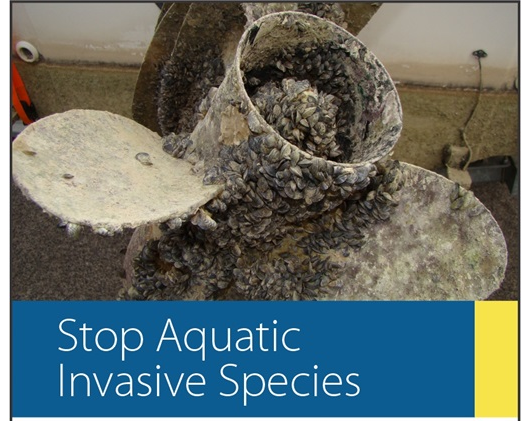
This week is Aquatic Invasive Species Awareness Week
The Government of Saskatchewan has proclaimed May 24 to 30 as Aquatic Invasive Species Awareness Week to raise awareness of the threat of invasive species to our province’s waterbodies.
“This week highlights the importance of protecting Saskatchewan’s waters from aquatic invasive species,” Environment Minister Dustin Duncan said. “By understanding the threat and taking appropriate actions, everyone can make a huge difference to the health of our water and fishery resources.”
Aquatic invasive species (AIS) are plant, animal and invertebrate species that threaten our waterways and can damage aquatic habitat, fisheries, valuable recreational resources and important power generation, irrigation and municipal water infrastructure.
AIS can be impossible to eliminate once established in a waterbody, and can cost millions of dollars annually to manage. Examples of AIS include the flowering rush, Prussian carp, zebra mussels and the spiny waterflea.
Saskatchewan’s AIS program focuses on ongoing public education, promoting the Clean, Drain, Dry Program for watercraft, roadside boat inspections, decontaminations and regular monitoring of Saskatchewan’s busy waterbodies.
Prevention of zebra and quagga mussels remains a top priority for the province. Efforts have been successful to date, with no invasive mussels found in Saskatchewan waterbodies.
Saskatchewan has eight mobile watercraft decontamination units to support its AIS inspection and decontamination program. Two units will be set up at fixed points along the Manitoba border, three along the U.S. border, and the rest placed strategically throughout the province.
“Provincial regulations remain in place to protect our lakes and rivers, including requiring watercraft to have their boat plugs removed during transport to comply with the province’s Clean, Drain, Dry Program,” Duncan said. “New for this year is a regulatory change that prohibits the collection of crayfish from any Saskatchewan waterbody, as well as prohibitions related to their use as bait for angling.”
Saskatchewan continues to partner with the federal Canada Border Services Agency and Department of Fisheries and Oceans, as well as provincial organizations and provincial governments in British Columbia, Alberta, Manitoba and the Yukon to co-ordinate prevention efforts across Western Canada. Partnerships also continue with the provincial AIS Task Force and the Invasive Species Centre for public education and monitoring, with a focus on the prevention, introduction and spread of AIS in Saskatchewan.
For the latest information and for more updates on everything Kindersley ‘Like’ the Kindersley Social Facebook page below…








































